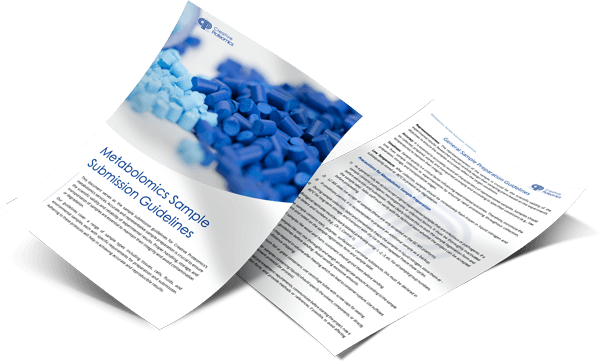The leukotrienes (LTs) are the major inflammatory lipid mediators derived from the lipoxygenase pathway of the arachidonic acid metabolism and were so named, because of the salient feature that these LTs can be produced by leukocytes and they shared a common conjugated triene in their structure. The LTs are composed of cysteinylleukotrienes (CysLTs) and leukotriene B4 (LTB4). The CysLTs are characterized by the presence of a cysteine ring whereas LTB4 is a noncysteine containing dihydroxy-leukotriene. The various subtypes known for CysLTs are leukotriene C4(LTC4), leukotriene D4 (LTD4) and leukotriene E4 (LTE4).The biological properties of LTs suggest that CysLTs, inparticular, play an important role in the pathogenesis of asthma. Three CysLT1 antagonists are already in the market, that is, Pranlukast, Zafirlukast, Montelukast. The specific LTB4 modulators, BLT antagonists on the other hand are still in the preliminary stages of clinical development.

The LTs are derived from the ubiquitous membrane, arachidonic acid (AA). These biologically active lipids are rapidly produced at the sites of inflammation by a series of reactions, initiated by cytosolic PLA2 (cPLA2) which in turn release the AA from the phospholipids present at the nuclear envelope. The AA binds to the 5-lipoxygenase (5-LO)-acivating protein and is further available to the enzyme, 5-LO. The 5-LO enzyme comprises a non-heme iron at its active center which undergoes transition from a divalent to a trivalent state during catalysis. The 5-LO enzyme acts on arachidonic acid bound to FLAP along with molecular oxygen, resulting in the formation of 5-hydroperoxy-eicosatetraenoic acid (5-HPETE) with subsequent formation of unstable, short-lived intermediate LTA4. LTA4 is converted to LTB4 by the enzyme LTA4 hydrolase, a cytosolic enzyme. The inflammatory cells such as eosinophils, basophils, mast cells and alveolar macrophages possessing the integral membrane protein LTC4 synthase synthesize CysLTs in response to biological and non-biological stimuli. LTC4 synthase conjugates with reduced glutathione at position C6 of LTA4 to form LTC4. LTC4 synthase also appears to be associated with FLAP in a multimolecular complex. Both LTB4 and LTC4 are exported to extracellular space by transporters. After its export, LTC4 is rapidly cleaved by transpeptidase to produce LTD4 and finally LTD4 is converted to LTE4 by dipeptidase removal of glycine.
Leukotrienes act principally on a sub-category of G protein-coupled receptors and may also act upon peroxisome proliferator-activated receptors. Leukotrienes are involved in asthmatic and allergic reactions and act to sustain inflammatory reactions. Some leukotriene receptor antagonists such asmontelukast and zafirlukast are applied to treat asthma. Leukotrienes also play important roles in the inflammatory response. Some such as LTB4 have a chemotactic effect on migrating neutrophils, and as such help to bring the necessary cells to the tissue. They also have a powerful effect in bronchoconstriction and increase vascular permeability.
Currently, a reliable and reproducible method using highly sensitive LC-MS/MS platform for the identification and quantification of diverse leukotriene species in different sample types has been established by the scientists at Creative Proteomics, which can satisfy the needs of academic and industrial study in your lab.
Platform
- LC-MS/MS
Summary
Profile of multiple kinds of leukotrienes by mixed organic solvent extractionin plasma or tissue. Leukotrienes are extracted and concentrated using solid phase extraction. The eluant is dried and re-suspended for LC-MS separation and measured using MRM methods.
Sample Requirement
- Normal Volume: 200 uL plasma, 20 mg tissue, 1e7 cells
- Minimal Volume: 50uL, 5 mg tissue, 6 e6 cells
Report
- A full report including all raw data, MS/MS instrument parameters and step-by-step calculations will be provided (Excel and PDF formats).
- Analytes are reported as uM or ug/mg (tissue), and CV's are generally<10%.
| Leukotrienes | ||
|---|---|---|
| LTC4 | LTD4 | LTE4 |
| LTB4 | 6-trans-LTB4 | 6-trans-12-epi-LTB4 |
| 20-Hydroxy-LTB4 | 20-Carboxy-LTB4 | |
Ordering Procedure:

*If your organization requires signing of a confidentiality agreement, please contact us by email.
Staffed by experienced biological scientists, Creative Proteomics can provide a wide range of services ranging from the sample preparation to the lipid extraction, characterization, identification and quantification. We promise accurate and reliable analysis, in shorter duration of time! You are welcome to discuss your project with us.







